This blog has mostly featured my Dad. He was in many ways the head cook and bottle washer in our family, and it is from him and my paternal family – aunts, grandma, that I learnt to cook. My mother wasn’t always very present in my child and teen hoods. She was a fragile soul with all sorts of issues, and was very much a living ghost on the periphery of our family life. I’ve mentioned before how I took over much of the household management when I was 11, and that’s partly why. I was also very much the eldest, there’s a 5 and 8 year gap between my sisters and I, so I have always had a different perspective on my mother, mostly because I could remember her before the tragedy of my second sister’s death at 6 months and the subsequent drift into unhealthy coping mechanisms.
I’ve also mentioned before that we were quite posh as a family. Dad was from a wealthy bourgeois family in Pécs, Hungary. My mother was born in Kuala Lumpur in Malaya, in 1939, the first daughter of a Scottish hospital consultant and his wife, who were classic colonials, living in a grand villa with servants and an ayah to tend the baby. I have a copy of her birth certificate, written in English and Chinese, stating Scottish for nationality, and really, with a name of Morag Elisabeth Macbeth, what else could she be? The astute amongst you will have spotted the date of birth was an inauspicious one – less than 2 years later my grandmother and she were bundled onto the second to last ship to leave Singapore, leaving my grandfather behind with his hospital patients. He was later interned into a Japanese prisoner of war camp. He survived, but my grandmother heard no word of him until 1946. Despite all the trauma of war, they returned to Malaya in 1947, leaving my mother behind in various boarding schools, as was the norm for colonial children of the period. Visits “home” took place only in the summer months, the rest of the time my mother went to stay with her cousins in Cambridge. At age 16 she was sent to a Swiss finishing school, Le Chalet, where she rebelled against the expected path of an upper middle class girl of university or marriage and instead went to study midwifery at Kings College London. Cookery didn’t really feature, although I do have a copy of Plain Scottish Cookery which was her school cook book. Plain being the operative word. I recall attempting herrings in oatmeal once. Once was enough.

So we fast forward to 1965 and my parents have married. Dad has just about obtained British citizenship, which will allow him to return to Hungary without fear of imprisonment or death following his active participation in the 1956 uprising which led to his exile. He naturally wants to show his new bride his homeland and introduce her to his family. And more importantly, he needs his mother to teach her how to cook. The language they had in common was French, and I have a whole collection of handwritten notes, in my mother’s elegant scrawl, which are testament to this procedure. Some are straightforward, others more vague. There is much reference to a yellow spoon in the cake recipes, and a handful or a “bit” of this or that. I am attempting to decipher these but the recipe I’m sharing today is straightforward. It is for Liver and Onions, Hungarian style.
Liver and onions features in so many cuisines. It’s a marriage made of necessity – eat everything, waste nothing and make sure it’s tasty. Liver can be a divisive meat – depending upon the origin it can be metallic, bitter or meltingly tender. In Venice we have the classic calves liver served with polenta; in Austria (and Hungary and Germany) we have Leberknödelsuppe – a delicious broth with light liver dumplings; in Jewish cuisine the classic chopped liver; in the UK bacon and liver; and so on. My father wasn’t keen on liver, his father Aladár was, so it was often served during his childhood and he had unpleasant memories of sitting at the dining table, long after his siblings had been released, pushing ever colder pieces of liver round his plate. I don’t share his aversion, and neither did my mother. This recipe is one she made often when I was very much younger and the kitchen was still somewhere she ventured.
As is common with Hungarian recipes, you start with onion, cooked very slowly in the fat of choice – lard for preference but you can also use butter or a neutral oil. I made this for lunch for myself, so the quantities are small, but can be scaled up to suit. My local butcher gave me 100g of calves liver, in a very thin slice, it was more than enough (it will do me two meals – for 2 people I’d suggest 150g, for 4 300g). The twist that makes it Hungarian (apart from, paprika) is to finish with dish with vinegar, adding that requisite sour note that also cuts the richness.
Slice 2 small onions into thin half moons. I’d allow 1 medium onion or 2 small onions per person – which seems like a lot but they will melt away during the slow cooking. Heat a thumb sized piece of lard or butter or a tbsp of oil in a wide pan. Keep the heat low, and add the onions. Stir well to coat in the fat, and add a sprinkle of salt and cover. Leave to gently cook for a minimum of 20 minutes, checking occasionally to make sure they aren’t catching – you want meltingly soft golden onions. If they seem to be cooking too quickly, add a splash of water. Meanwhile slice the liver thinly, add a tsp of paprika (use more for more liver) and toss well to coat, then add a tsp of plain flour and toss again. Do it in this order because you want to preserve the paprika from burning, the flour will prevent this. Check the onions, and if they are soft and lovely, push to the edges of the pan and turn up the heat – add the strips of liver and cook on a high heat for literally minutes – 1 minute per side should be plenty. Turn off the heat and add a tablespoon of white wine vinegar (you can use red or cider too), stir well and cover. Leave for a couple of minutes to allow the liver to relax and the sauce to form. Make some (as Iain the Drunken Butcher would say) mostly dairy mash, or other carb of choice – tagliatelle or parsleyed new potatoes also work well. Check the seasoning of the liver, you may want to add a little salt, and then pile onto the mash and add a sprinkle more of paprika. I’d also advocate serving a green leaf or cucumber salad on the side, with a light Hungarian dressing of sugar, vinegar, salt and water.
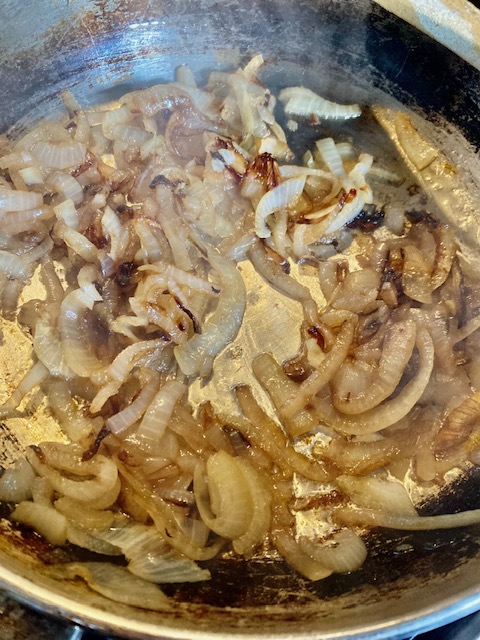
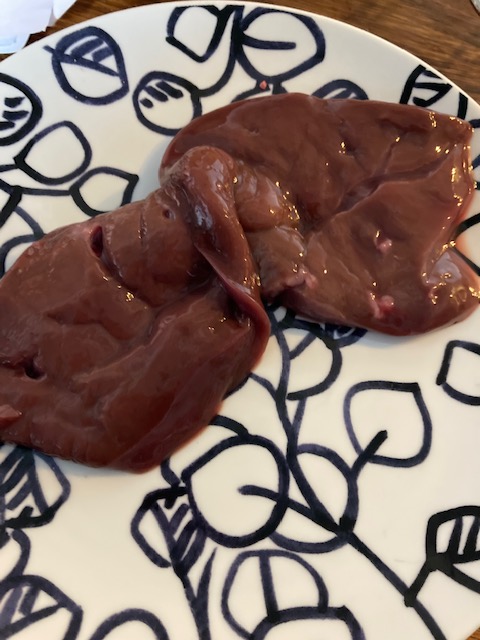
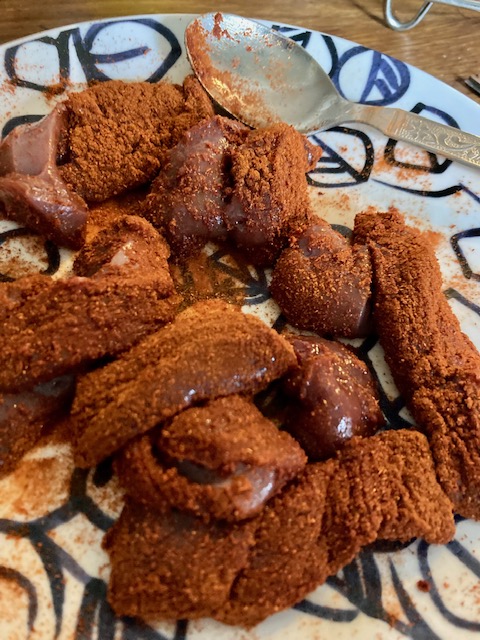
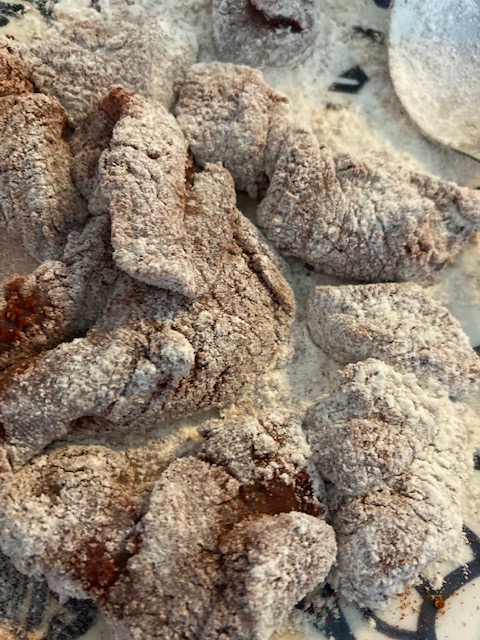
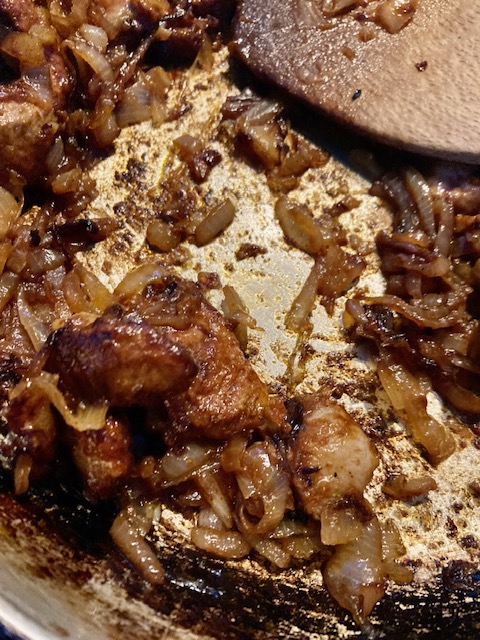
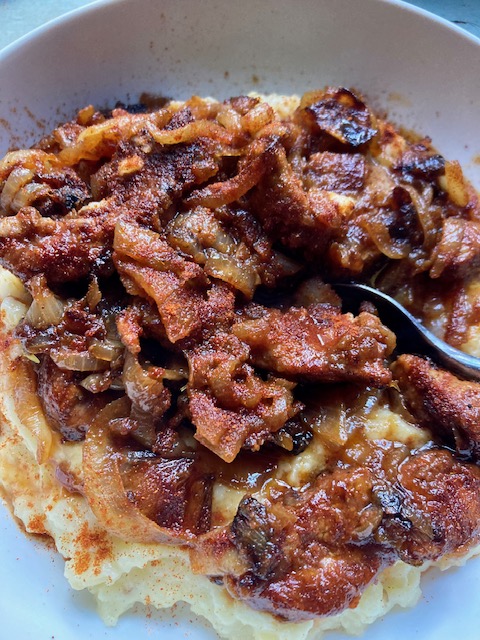
I love the way you write about your past, truthful to the realities of it but without judgment or mawkishness. It’s a beautiful and moving piece to read.
So interesting that the Hungarian way with liver also adds vinegar to counter the sweetness of the onions, much like the Venetian way, which I really love!
LikeLiked by 1 person
Thank you x
LikeLike
I love liver with onions! This looks good & sounds delicious! I’d serve it over steamed plain white rice! I’m a Filipino & my main carb is rice – not fried rice, just plain white rice. I prefer Japanese premium medium grain to long-grain or even basmati!
Thank you so much! Somebody shared this at the FB group writing the Kitchen!
LikeLike
Great! Let me know if you try it.
LikeLike
The Hungarians are not alone in adding vinegar to their liver and onions. I spent time in Mulhouse in Alsace, and it’s part of their tradition, too – very tasty, served with noodles. No paprika, though…
LikeLike
Vinegar is used in lots of Hungarian cooking as it is often quite rich – we do like a bit of lard/ sour cream!
LikeLike
Lucy, I am not a liver fan. And yet I must say you have made a most attractive and appealing dish of it! If it were set before me, I might be tempted to try it. And I have never been tempted before! Like Kavey, I love the way you write about the difficulties of your early life in such a balanced way, stating the facts without judgment and without sugar-coating it. Remarkable storytelling!
LikeLike
Thank you Jean. I really appreciate you taking the time to write such a nice message. And I hope you do try it!
LikeLike